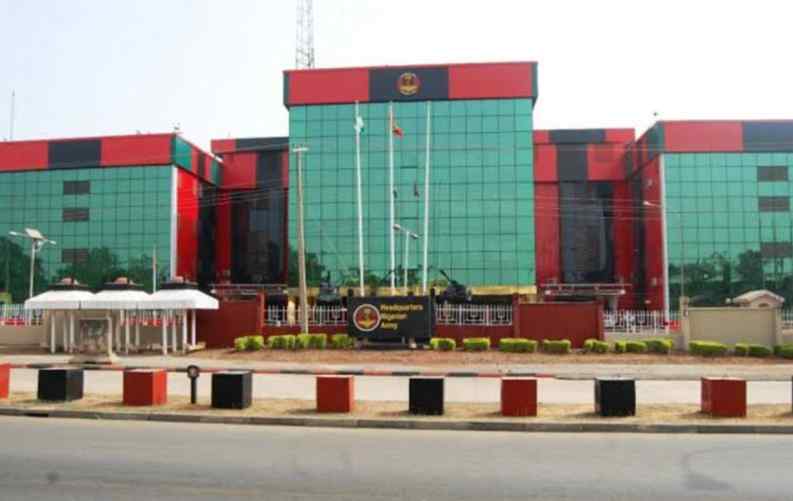The Nigerian Defence Headquarters has disclosed that the Nigerian military will need a budget of at least $6bn in three years to stand a chance of effectively tackling the growing security crises confronting the country.
The Director of Production, DHQ, Air Vice Marshall M. A. Yakubu, who made this disclosure asserted that the country will have to budget not less than $2bn annually and consecutively for at least three years to be able to make the Armed Forces efficient and effective.
Yakubu stated this in Abuja on Monday at a public hearing organised by the House Committee on Defence, on the Armed Forces Support Trust Fund (Establishment) Bill, 2021.
Director of Production, Defence Headquarters, Air Vice Marshall M. A. Yakubu, who spoke during the public hearing on the Armed Forces Support Trust Fund Bill said even the sources of funding which the Bill specifies would be inadequate to tackle the problem.
Read Also: Call To Take Over Power: Nigerian Military Reveals Next Move
The House had introduced the bill over the growing security crises across the country. It seeks to ‘creatively make funds available through deductions from statutory receipts of the Federal Government as well as voluntary donations’ for five years, subject to extension.
However, Yakubu stated the annual N100bn being projected to be an additional fund to the Armed Forces would still leave them underfunded.
The AVM said, ‘The last time – about two weeks ago, we had a brief discussion of what we intend to generate from this. We are estimating something in the range of N100bn per annum. Convert that to dollars because virtually all the equipment is imported. This will go nowhere! And it would not address the problem we are seeking to address unless we expand the sources.
‘Nigerians, I know, are tired of being asked to pay for something. The level of poverty is severe. However, nobody wants to sleep with only one eye closed. Everybody is scared of travelling on the road because of insecurity. Therefore, I would urge that all stakeholders must educate citizens to understand the need to sacrifice because if we do not do that to address this problem, sincerely speaking, it would continue to be a mirage.
Yakubu added, ‘If we are not able to raise a minimum of $2bn per annum in the next three years for a start, subsequently maybe we can begin to taper down the percentages; but for a start, we need a bulk sum because many of these manufacturers of equipment require 100 per cent down payment to even start production.
‘So, you cannot sign a contract, for example with the US manufacturers, and pay 15 per cent mobilisation as required by the Procurement Act. Nobody will look at you. Their terms must be followed. Many times we are asked to pay 100 per cent. An example is the Super Tucano. This one is on a government-to-government (basis). They insist on 100 per cent payment within 30 days. No budgetary allocation will fund that.’
The AVM noted that he was conversant with procurement and logistics in the military, with his experience of being a Defence attaché with the United States from 2014 to 2017, Director of Procurement at the headquarters of the Nigerian Air Force for another two years, and Chief of Logistics also at the headquarters of the NAF for another two years.
He said, ‘Every year, how do we get our budget, capital budget specifically? An arbitrary envelope is simply thrown at us. This year, for example, your budget cap should be N20bn. It does not take into consideration what the actual needs are; what do you need to meet those needs? Now that is one.
‘Secondly, we are all aware of the exchange rate fluctuations. We have run into problems were even working with approved budget envelopes, we have gone ahead to sign contracts for procurement of equipment and suddenly, the exchange rate collapses on us and we are unable to fund it. We have found ourselves every year running back to the Federal Government for interventions. This is not sustainable.’
AFRICA TODAY NEWS, NEW YORK

